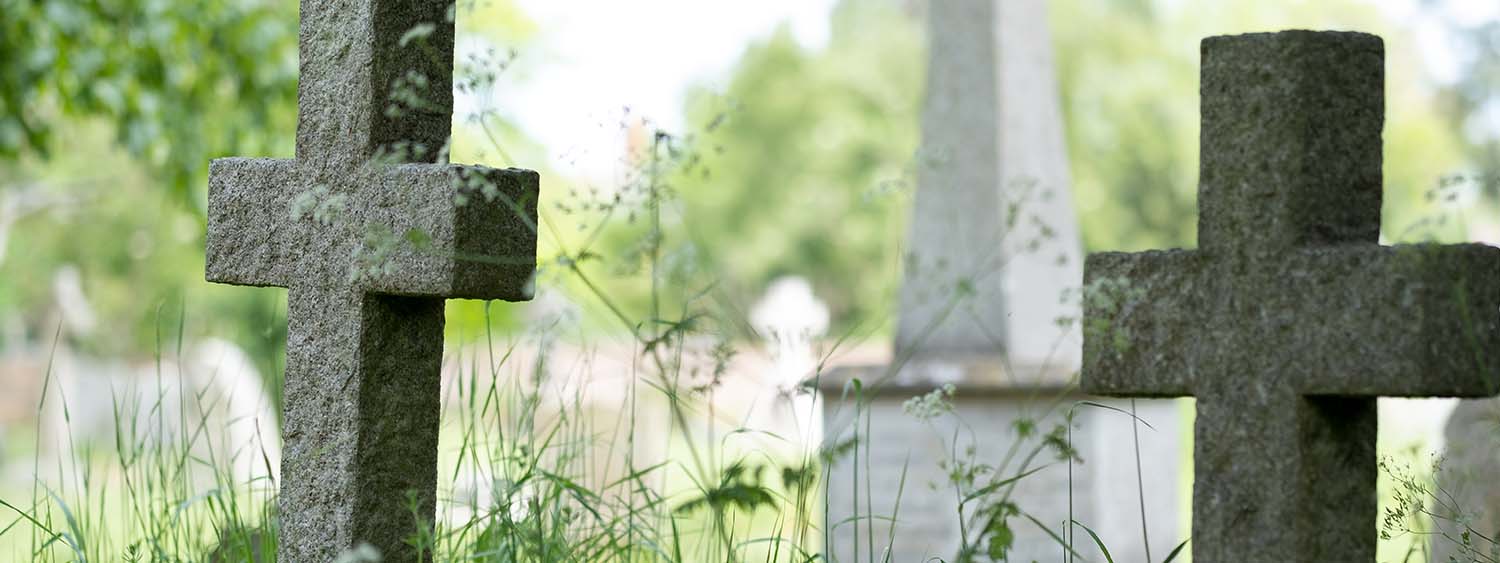
A funeral is used to mark the end of a person's life here on earth
Family and friends come together to express grief, give thanks for the life lived and commend the person into God's keeping.
Everyone is entitled to either a Christian burial service (funeral) or to have their ashes buried in their local parish churchyard by their local parish priest, whether or not they were churchgoers. Speak to your local vicar for more information.
When somebody you love dies, there’s a lot to think about and it can feel overwhelming at the time. Many of us don’t know what to do when it comes. Each bereavement is unique, and people are different. You might find this advice on dealing with grief and bereavement helpful.
There are also some useful resources on the Church of England site which may help you start your thinking about the service for your family member or friend.
But please don’t worry – your vicar will not expect you to ‘know all the answers’. They are there to help you plan the service and to support you in your loss.
Churchyard and memorials guidance leaflets
There are regulations on the sort of memorials that are permitted in churchyards. You can find out more in the leaflets below, as well as helpful resources for people experiencing bereavement or loss.
If the churchyard has been closed, then the local authority will provide alternative places of burial and the vicar can carry out the service there instead of the church or crematorium.
- Helpful information for families
- Churchyard regulations for funeral directors and stonemasons
- Diocesan Registry guidance
Death and dying
As a society we aren’t good at talking about death, and as individuals we often avoid thinking about it - the process of death is largely handed over to professionals, so we rarely witness it. In many ways it's reasonable for us to keep our distance from death.
But we can't deal with threat by avoiding it forever, and society is beginning to wake up to this fact: bucket lists and death cafes are fairly commonplace and have brought the topic of death and the process of dying out of the shadows and into the public arena.
It turns out that many people, especially older people, would value an opportunity to talk frankly about what is sometimes known as ‘the last taboo’. Churches have a key role. After all, it is the certainty of the resurrection that gives us our identity as Christians, and the message that we proclaim and try to live out is one of life in the midst of death and hope in the midst of loss. For ‘I came that they may have life, and have it abundantly.’ (John 10:10). We have something significant to say.
Pray
In the end
We return
To the heart of matter.
To the heart of the matter:
That the love of God created us,
The spirit of God enlivened us,
And the mystery of God awaits us.
May the peace of God be with us
Now and forever.
Amen
By Alison Webster.
Read
Living Well in the End Times by Joanna Collicutt — a Christian resource to support people to make peace with the prospect of death.
Death and Life — all you need to lead workshops and discussions on themes of death and dying, produced by the Diocese of Oxford.